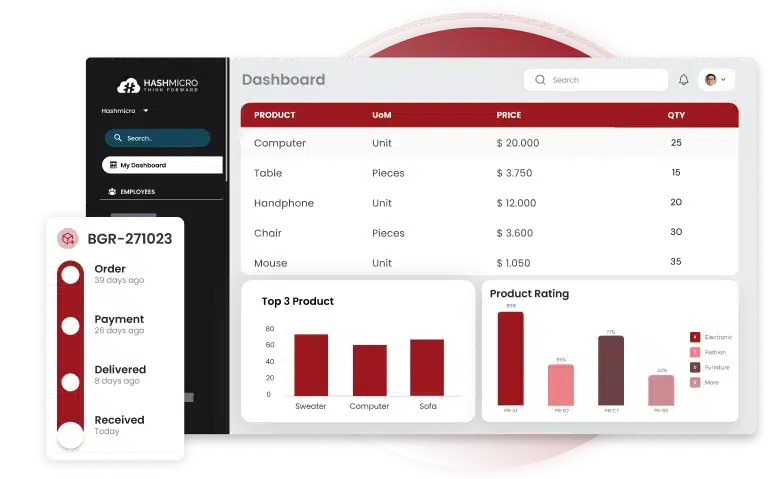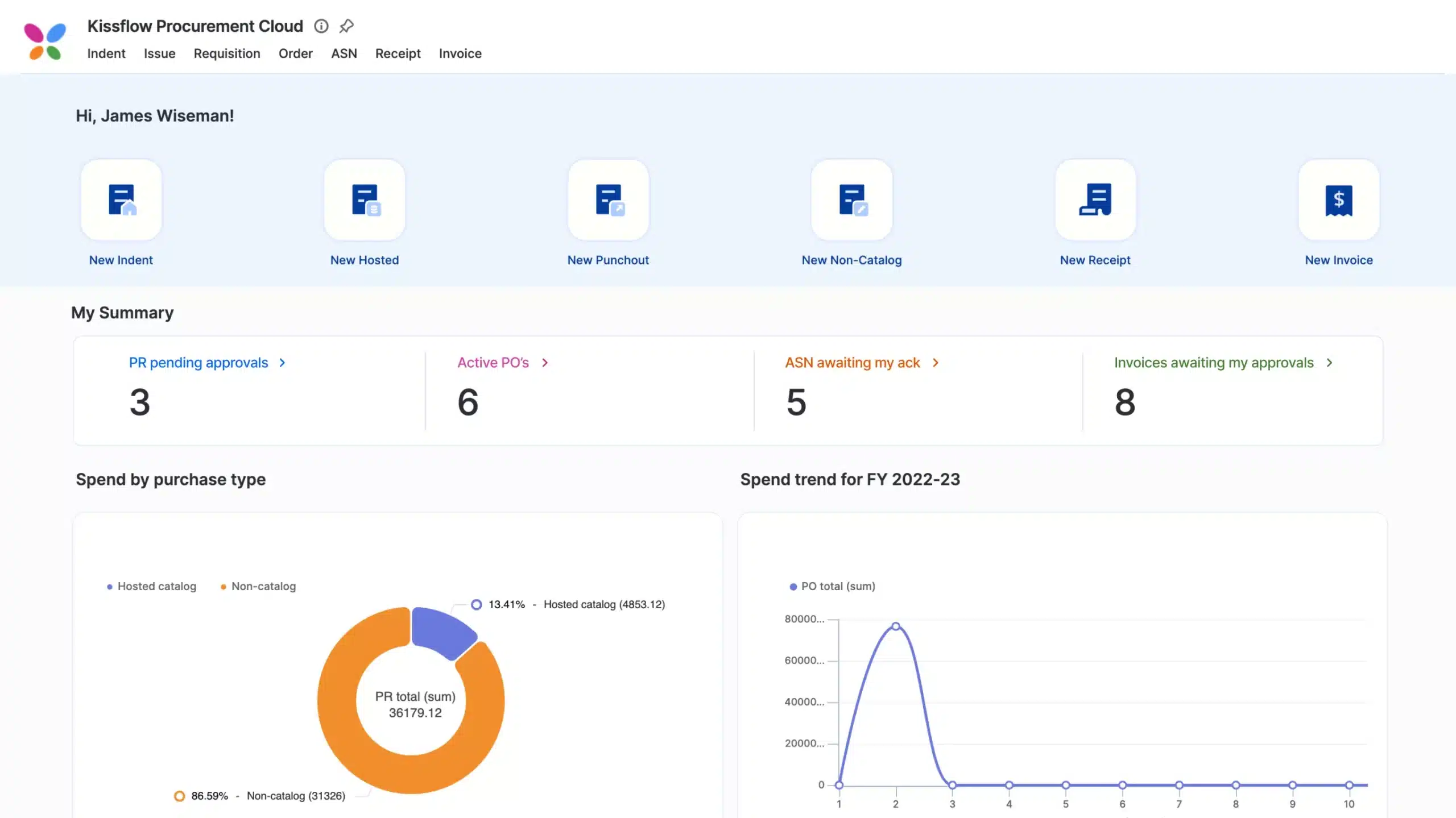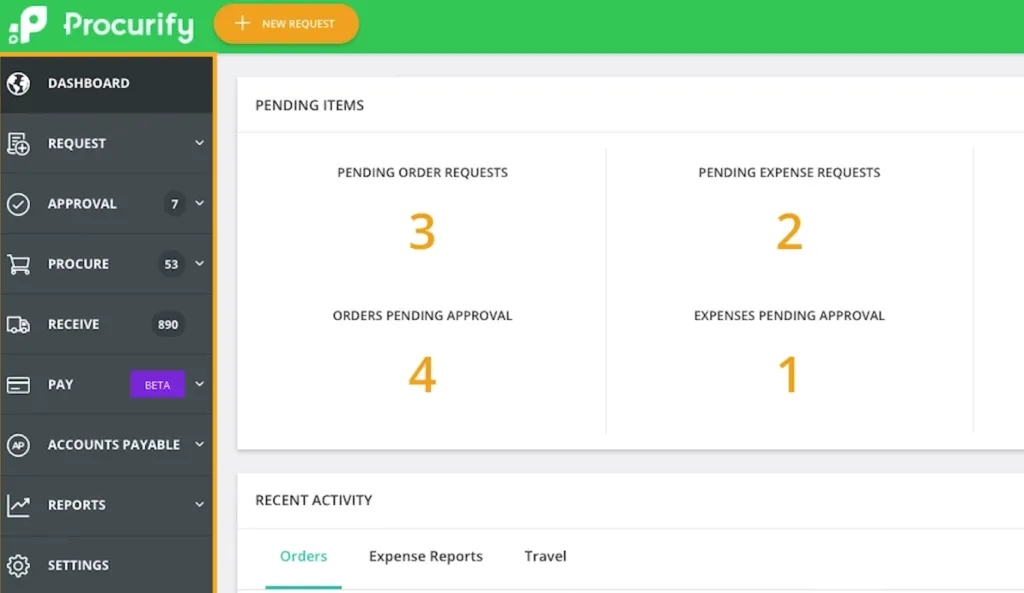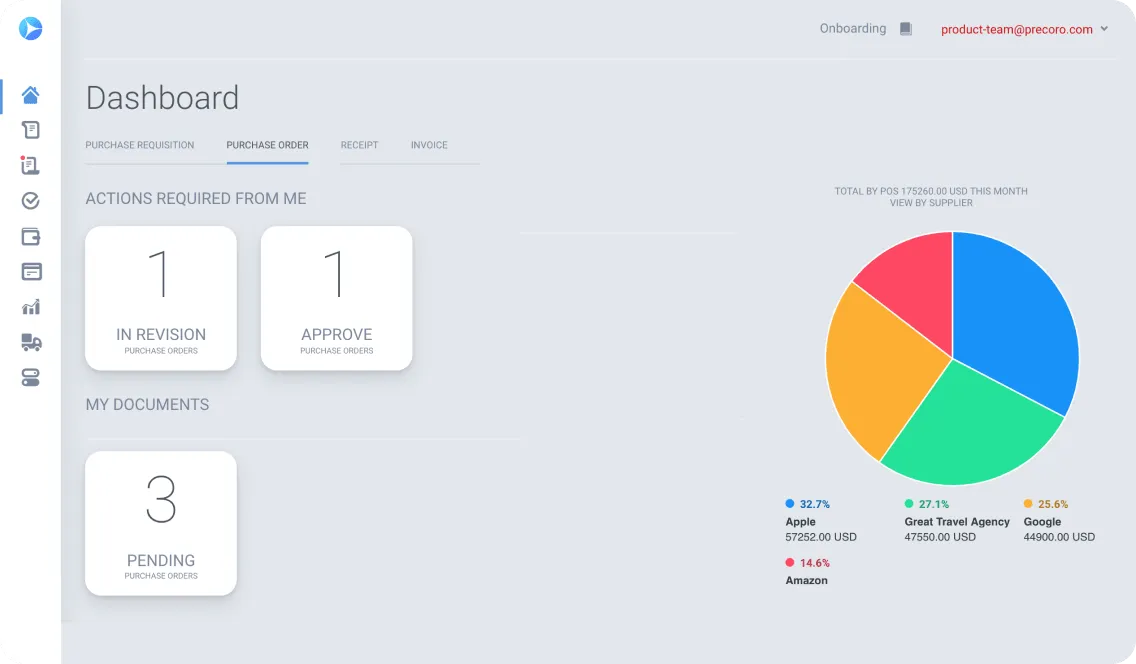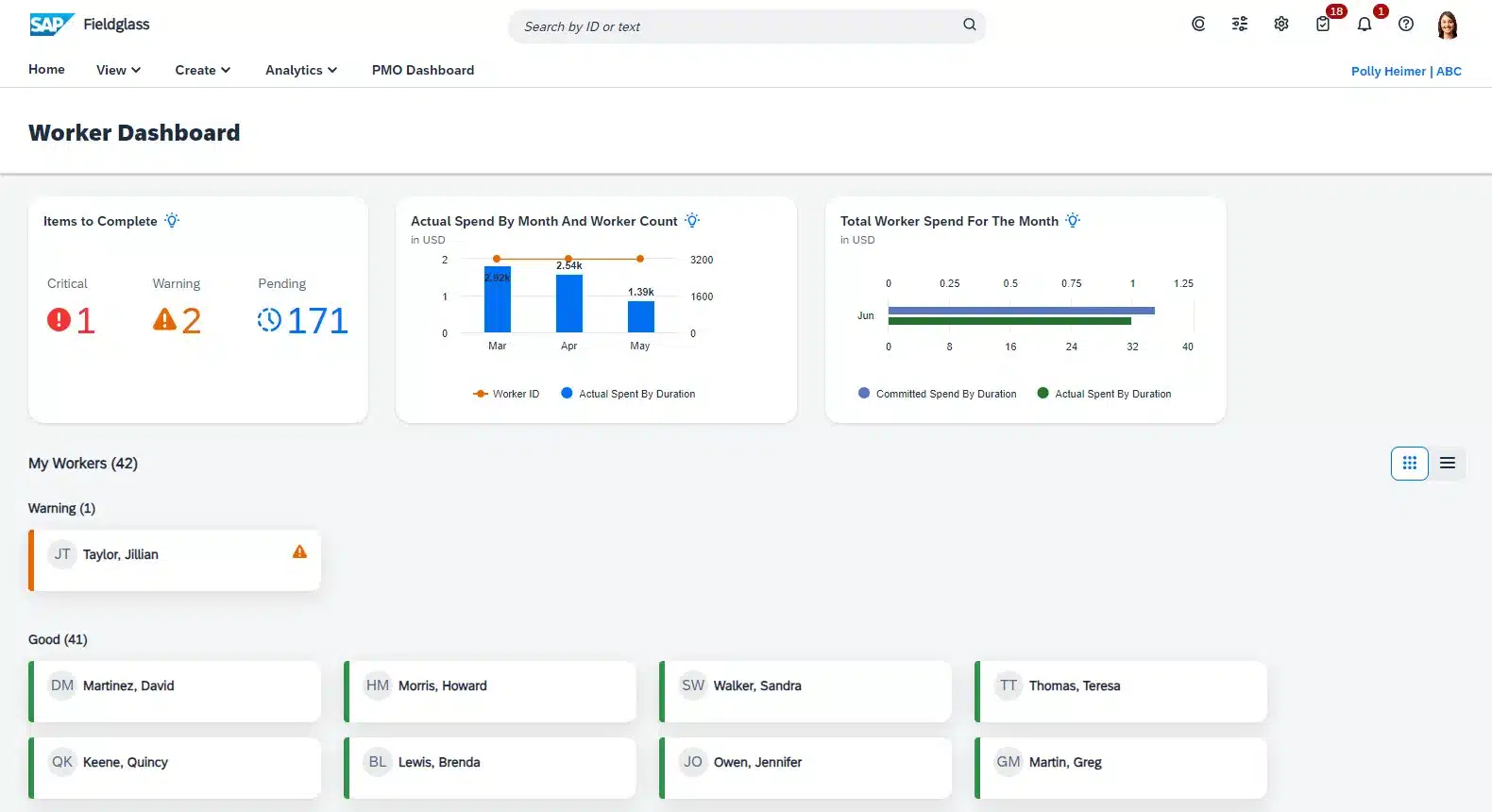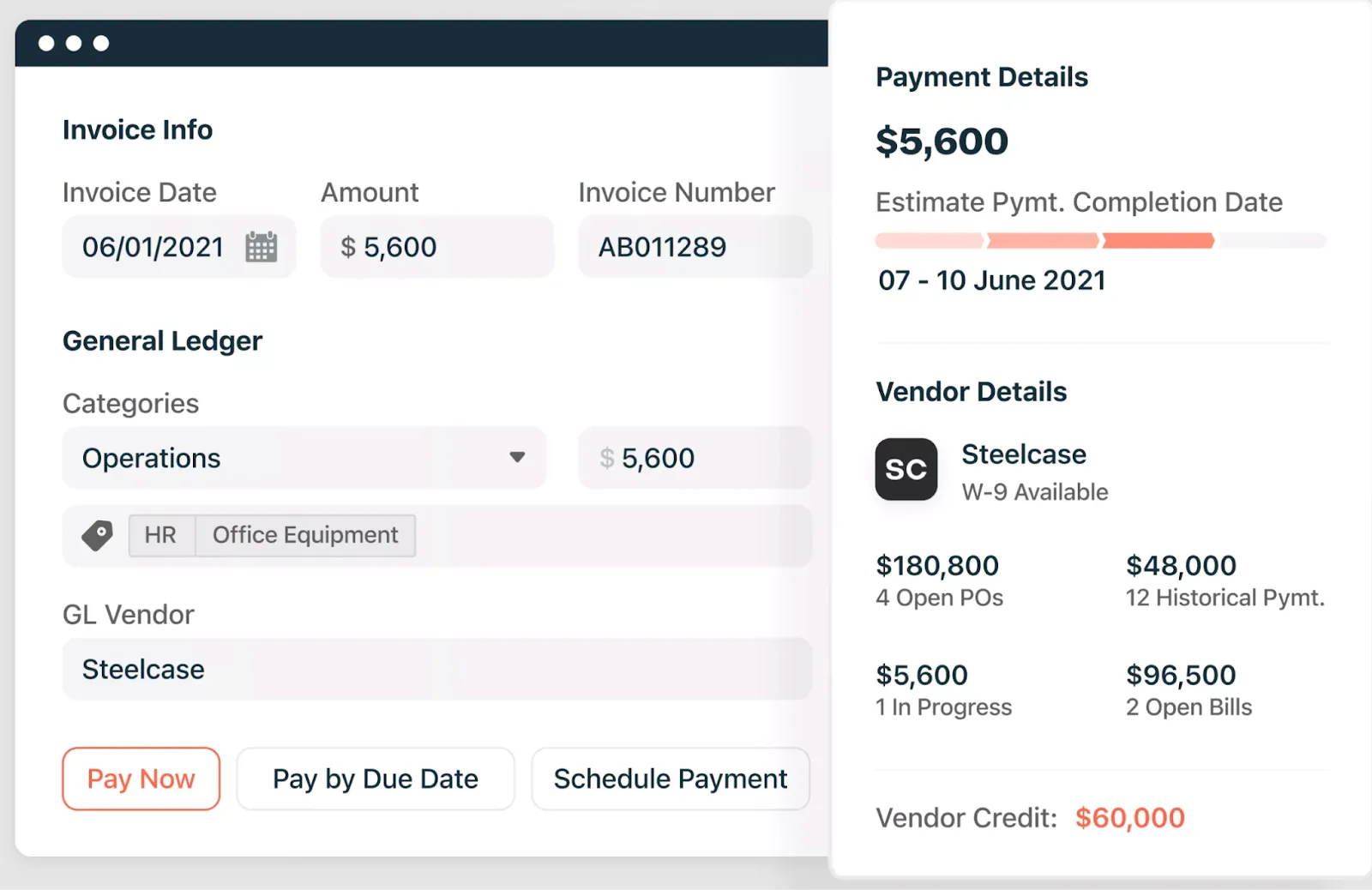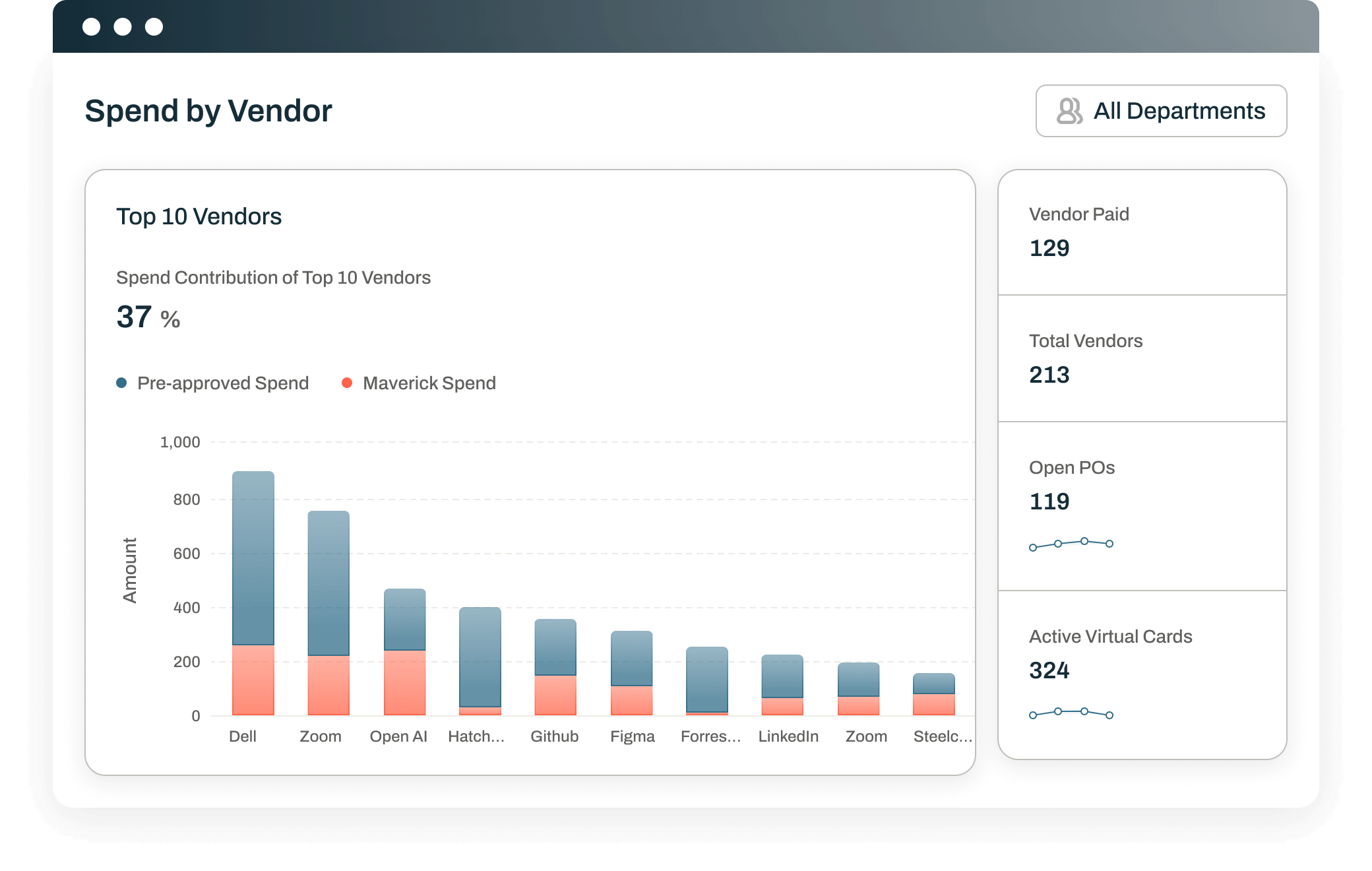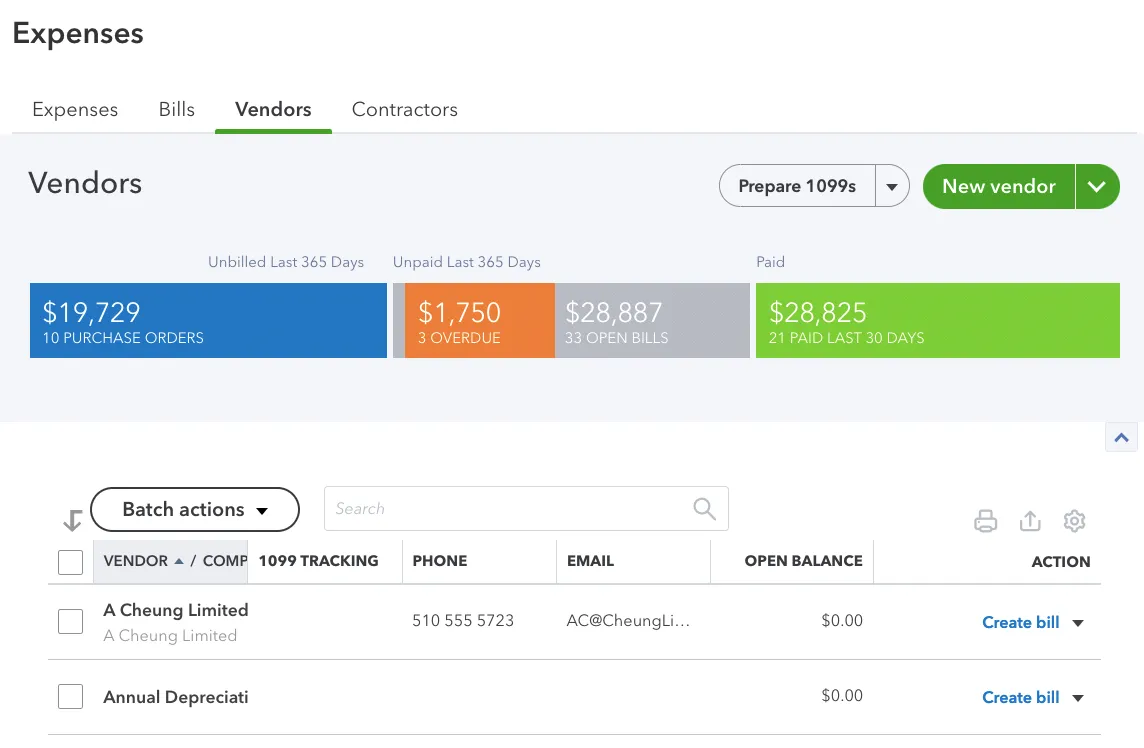If your company works with many external vendors or contract workers, managing them manually or through spreadsheets can be a real challenge. From onboarding to handling their inquiries, it takes up much valuable time.
Fortunately, vendor management software can make things much easier. These tools streamline the entire vendor management process, allowing your team to focus on other critical tasks. With vendor management software, all vendor information is centralized and easily accessible.
To help you out, we’ve carefully researched and put together a list of the top 8 vendor management software options that walang sablay (won’t fail you) in simplifying your vendor management process.
Table of Contents

Key Takeaways
|
Quick Overview of 8 Best Vendor Management Solutions
| Brand | Best for | Pros | Cons |
|---|---|---|---|
| HashMicro | Best all-in-one customizable Vendor Management Software with automation and unlimited user access. | User-friendly interface and easy navigation; Highly customizable to suit business’s needs; Seamless integration with other systems, including inventory, CRM, and HRM; Unlimited users without additional fee | Implementation duration may vary depending on the business’s requirements; Free demo queue may take time due to high demand |
| Kissflow | Simple interface and ability to streamline and customize business workflows. | Customizable workflow; User-friendly interface; Seamless integration | Limited advanced features; Performance issues; Customer support’s response might be slow |
| Procurify | Easily manages procurement, tracks spending, and keeps budgets in check. | User-friendly interface; Customizable approval workflow; Real-time budget tracking | Limited integration; Scalability issues; Lack of advanced reporting |
| Precoro | All-in-one spend management tools that make vendor communication and procurement easy. | Comprehensive purchase order management; Supplier management; Customizable approval workflows | Steep learning curve; Limited mobile functionality; Basic inventory management |
| SAP Fieldglass | manage every part of vendor and external workforce relationships. | Easy to use; Complete features; Process simplification | Slow performance; Non-intuitive interface; Steep learning curve |
| Hiver | Integrates smoothly with email, making it simple to manage vendor communication and tasks. | Email-based workflow management; Strong collaboration tools; Simple onboarding process | Limited scalability; Basic reporting tools; Lack of comprehensive features |
| Airbase | It combines spend management, expense tracking, and payment processing in one platform. | Easy to use; Intuitive interface; Easy to submit documents | Approval issues; Receipt management issues; Missing features |
| Quickbooks | It's dependable accounting and vendor management features. | Easy to use; Simple interface; Strong accounting management | Missing features; Poor customer support; Limited functionalities |
What is Vendor Management Software?
Vendor management software simplifies managing vendors by enabling consistent collaboration, regular monitoring, and performance tracking. These tools help businesses manage costs, track quality, and measure third-party vendor performance, making the process more efficient.
Vendor management systems manage all aspects of vendor relationships, from finding vendors to handling timecards and payments. These systems provide communication tools and task management features and help organize vendor payments, expenses, and contracts.
Vendor management software can benefit companies of all sizes and industries, especially those hiring contractors or freelancers. These cloud-based tools make communication easier, boost productivity, and can be used across the entire workforce.
Benefits of Vendor Management Software
Vendor management software has numerous benefits that can significantly improve how your business handles vendor relationships. Here are 5 most essential benefits of vendor management software:
- Onboard vendors: Vendors can easily enter their details—like name, business type, and documents—directly into the software. The system then automatically checks these for accuracy and compliance.
- Improve communication: The software allows vendors and businesses to communicate and collaborate on projects easily. You can share documents, ask questions, and manage projects all in one place.
- Automate workflows: Automate tasks like creating purchase orders and processing invoices, reducing manual errors and saving time.
- Track performance: Monitor important metrics like delivery time, order accuracy, payment processes, and satisfaction ratings without the hassle of searching through files and reports.
- Reduce inventory issues: Inventory management software vendors help lower inventory levels by 7%, reduce stockouts by 31%, and decrease inventory variability by 9%, leading to more efficient and stable operations.
Top 8 Vendor Management Software in the Philippines in 2025
Selecting the right vendor management software is crucial for efficient business operations. Here is a carefully curated list of the top 8 vendor management software in the Philippines for 2025, designed to help you make the best choice for improving your day-to-day processes.
1. HashMicro
HashMicro is a powerful web-based vendor management system (VMS) designed specifically for businesses in the Philippines. It helps companies streamline their vendor management process with advanced features and smooth integration, making vendor relationships easier to handle.
Why we recommend it: HashMicro simplifies vendor onboarding, automates purchase orders, and manages contracts. It also offers real-time tracking of vendor performance and compliance. Therefore, businesses can keep everything running smoothly.
Companies can try it out for free with a demo and consultation from HashMicro’s professional team. This way, you can see how it can boost your business’s efficiency and profitability.
With over 1,750 clients in Singapore and Indonesia who have already improved their operations using HashMicro, the company is ready to help Filipino businesses optimize their vendor management process.
HashMicro lets you manage the entire vendor process—from onboarding and contracts to performance tracking—with real-time data. This leads to better vendor relationships, improved compliance, and smoother operations.
Key features of HashMicro’s VMS:
- Automatic Vendor Rating: Evaluates vendors on punctuality, pricing, and completeness, helping businesses make informed decisions.
- Real-Time Vendor Performance Tracking: Monitors vendor performance in real-time to quickly identify and address issues.
- Seamless Integration with Procurement: Integrates smoothly with procurement processes for streamlined vendor management.
- Customizable Approval Workflows: Allows businesses to set up approval workflows tailored to their specific needs.
- Periodic Vendor Rating Review: Regularly reviews vendor ratings to ensure continuous improvement in vendor relationships.
- Vendor Promotion Program Management: Manages vendor promotion programs to encourage better performance and partnerships.
| Pros | Cons |
|
|
HashMicro offers a complete solution that streamlines vendor management effectively. It’s perfect for companies in the Philippines aiming to enhance their vendor relationships and achieve seamless integration across all business operations.
2. Kissflow
Why we choose: People choose Kissflow for its simple interface and ability to streamline and customize business workflows.
Kissflow is an easy-to-use vendor management solution that simplifies procurement and vendor processes. It offers customizable workflows that help businesses streamline vendor onboarding, manage contracts, and automate purchase orders.
With a centralized platform, all vendor-related data, communications, and approvals are efficiently managed in one place. However, while Kissflow’s customization options are strong, some users find its reporting features less advanced.
Features:
- Automates onboarding
- Simplifies catalog management
- Enables shipping notices and PO updates
- Provides access to supplier modules
| Pros | Cons |
|
|
3. Procurify
Why we choose: Businesses pick Procurify because it easily manages procurement, tracks spending, and keeps budgets in check.
Procurify is a user-friendly procurement software that helps businesses control spending and manage vendor relationships effectively. Its intuitive interface allows for easy tracking of purchase orders, vendor data, and budget approvals.
Procurify’s real-time budget tracking ensures that companies stay within their spending limits, while customizable approval workflows enhance control over procurement processes.
Although Procurify is great for smaller to mid-sized companies, larger enterprises may find its integration options somewhat limited when dealing with more complex needs.
Features:
- Vendor onboarding
- Vendor approval
- Contract details
| Pros | Cons |
|
|
4. Precoro
Why we choose: Users prefer Precoro for its all-in-one spend management tools that make vendor communication and procurement easy.
Precoro is a user-friendly vendor management tool that helps businesses streamline spending and maximize savings. Its supplier management module consolidates vendor data, purchase orders, invoices, and contracts in one place, with smart notifications to ensure nothing is overlooked.
The self-service supplier portal allows vendors to manage catalogues, update prices, control delivery schedules, and easily respond to RFPs, enhancing communication and collaboration.
However, despite its extensive features, Precoro’s approval workflows are somewhat rigid, leaving users wishing for more flexibility to tailor the vendor management process to their specific needs.
Features:
- Approval workflow
- Budget control
- Supplier management
- Vendor approval
| Pros | Cons |
|
|
5. SAP Fieldglass
Why we choose: Companies choose SAP Fieldglass for its strong tools that manage every part of vendor and external workforce relationships.
SAP Fieldglass is a comprehensive vendor management system designed to manage the entire lifecycle of external workforce and vendor relationships. It provides robust tools for onboarding, managing contracts, tracking vendor performance, and automating payments.
SAP Fieldglass also offers powerful analytics to help companies make data-driven decisions. While its feature set is extensive and suitable for large enterprises, some users might find the system complex and challenging to navigate without extensive training.
Features:
- Supplier management
- Contract management
- Workforce management
- Analytics and reporting
| Pros | Cons |
|
|
6. Hiver
Why we choose: Teams select Hiver because it integrates smoothly with email, making it simple to manage vendor communication and tasks.
Hiver is a simple yet effective vendor management solution that integrates directly with your email, making it easy to manage vendor communication and tasks. Hiver’s email-based workflows allow teams to collaborate on vendor management activities without switching platforms.
It also provides tools to organize vendor payments, expenses, and contracts, all from within your inbox. However, while Hiver’s simplicity is its strength, it may lack the comprehensive features needed by larger organizations with complex vendor management requirements.
Features:
- Email organization
- Team collaboration
- Task visibility
- Vendor portal
| Pros | Cons |
|
|
7. Airbase
Why we choose: Businesses use Airbase because it combines spend management, expense tracking, and payment processing in one platform.
Airbase is a comprehensive spend management platform that simplifies vendor management, expense tracking, and business payment processing. It offers a seamless way to manage purchase orders, vendor invoices, and payments all in one platform.
Airbase’s approval workflows and real-time budget controls help businesses maintain financial discipline. However, despite its robust feature set, some users may find Airbase’s setup process slightly challenging, especially when integrating with existing systems.
Features:
- Bill payment
- Supplier management
- Invoice management
- Approval workflow
| Pros | Cons |
|
|
8. Quickbooks
Why we choose: Businesses prefer QuickBooks for its dependable accounting and vendor management features.
QuickBooks is a popular accounting software that also provides essential vendor management features. It allows businesses to track vendor bills, manage payments, and keep all vendor-related information organized in one place.
This vendor simplifies managing expenses and generating reports, which makes it a reliable choice for small to mid-sized businesses. However, while QuickBooks excels in basic vendor management, it may lack the advanced features required by larger companies.
Features:
- Purchase order management
- Vendor center
- Bill management and payment tracking
- Vendor communication
| Pros | Cons |
|
|
How to Choose the Right Vendor Management Software for Business
Choosing the right vendor management software is critical in ensuring smooth operations and long-term growth for your business. With so many options available, it’s important to focus on key factors that will make the software perfect for your needs. Below are the essential points to consider:
- Identify Your Specific Needs: Determine whether you need better communication, streamlined payments, or automated workflows.
- Look for Customizable Features: Choose software that can be tailored to fit your unique business processes.
- Ensure Seamless Integration: Ensure the software integrates well with your existing tools to avoid disrupting your operations.
- Consider Ease of Use: A user-friendly interface will help your team adopt the software without extensive training.
- Prioritize Security: Ensure the software has strong security measures to protect sensitive vendor and company information.
- Opt for a Cloud-Based Solution: For flexibility, choose software that allows access from anywhere, at any time.
- Evaluate Scalability: Select a system that can grow with your business as your vendor management needs evolve.
Focusing on these factors will better equip you to choose vendor management software that meets your current needs and supports your business as it expands.
Conclusion
Good vendor management software ensures effective business functioning going forward. Implementing the right software, tailored to your needs and industry standards, can significantly enhance your vendor relationships and overall operational efficiency.
One of the standout solutions is HashMicro’s vendor management system, which helps alleviate the burden of vendor management. Built on a robust ERP platform, HashMicro can automate vendor onboarding and streamline the process—even if failures occur—ensuring best-in-class industry compliance while integrating with other business operations.
Experience the benefits of HashMicro VMS and find out how it can streamline your vendor management process. Get your free demo today!

FAQ About Vendor Management Software
-
Can you use CRM for vendor management?
Here’s why a Customer management solutions could be an excellent choice for your next vendor management software: Centralized information is crucial for effective vendor management, and a CRM allows you to store all your vendor details in one convenient, centralized location, giving you instant access whenever needed.
-
Is vendor management part of procurement?
Although procurement and vendor management are closely related, they serve distinct functions within a company. Procurement is primarily focused on sourcing efficiently and managing transactions, whereas vendor management is more about cultivating strategic relationships and maximizing value.
-
What is the role of vendor in procurement?
Vendors play a key role in supplying goods and services to an organization. The act of obtaining these goods or services from vendors is known as procurement.









